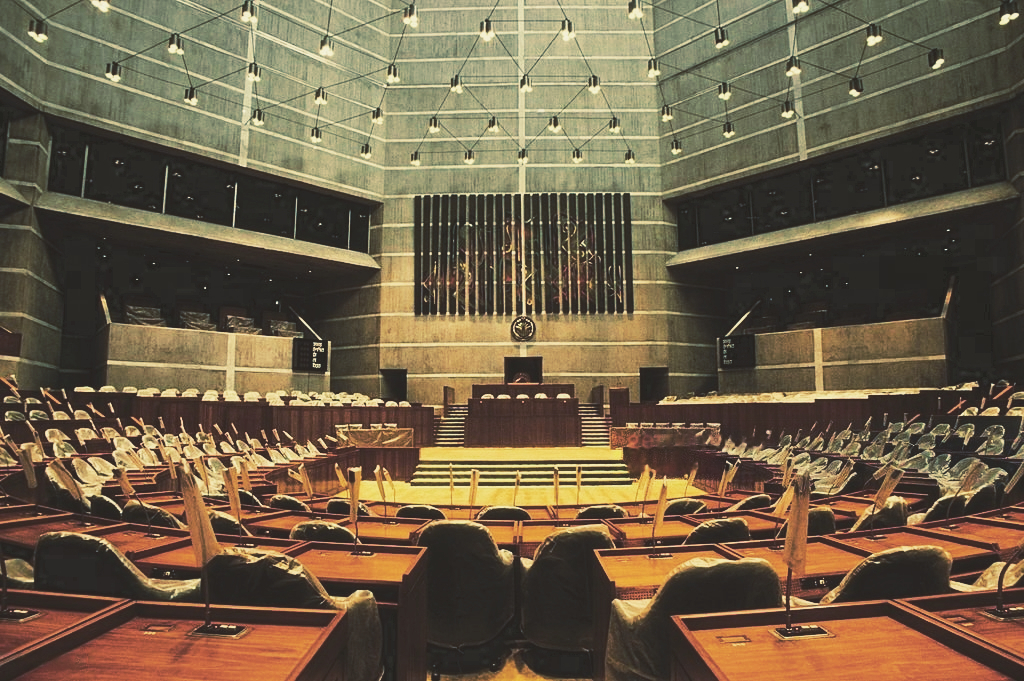“Navigating the Boundaries of Democracy”: A Critical Analysis of Article 70 of the Bangladesh Constitution

Article 70 of the Bangladesh Constitution has been the subject of numerous political criticisms and debates over the years. Many have questioned its goals, while others have loudly advocated for its abolition. This article discusses some possible situations which may lead to a parliament member’s seat vacation. Firstly, if a member of the parliament gives resignation to his party. Secondly, if a member of the parliament votes against his party in parliament decision-making or if the member abstains from voting or remains absent from the direction of his party, it will be deemed as a vote against his party. This paper will try to critically explore the scope and limitations of Article 70 of the Bangladesh Constitution.
The essential idea behind Article 70 is that a party runs with its own very specific philosophy and ideology and if there is ideological diversity among the party members, it could undermine the stability of the government. This article guarantees the full support of the MPs to their respective parties in parliamentary decision-making. In a democratic parliament, the votes cast by members of a democratic legislature carry a tremendous amount of responsibility and duty. Article 70 guarantees parliament members’ complete cooperation with their parties even if the subject of the vote is oppressive or does not reflect popular public opinion.
The three primary components of the state are: the Legislature, the Executive, and the Judiciary. The primary goal of parliamentary governance is to provide a check and balance system in which the executive is accountable to the legislature. This approach ensures that the executive branch is more responsive to their obligations because they never know whether or not their proposition will be accepted in the parliament. However, this is the situation in which Article 70 generates a great deal of debate. A clause in Article 70 expressly prevents members of the parliament from voting against their party; otherwise, their seats will be vacated. With this anti-floor crossing statute, the government and the executive are in a position to exercise arbitrary powers if they so desire. The freedom of parliamentarians has largely been constrained by this very questionable provision. One of the biggest criticisms of Article 70 is the government’s lack of accountability to the legislature. Now that we’ve established the conditions, the government is free to enact any law it pleases, regardless of how much the general populace is against it.
Article 7 of the Bangladesh Constitution guarantees the country’s constitutional supremacy and specifies that the people of the republic are the source of authority not any political party. People elect local representatives to carry out public wishes. They expect their representatives to be transparent, responsive, and accountable. Unfortunately, there is a widely held belief in Bangladesh that the people’s authority ends with a ballot paper. The local representatives are set to ensure the development of their respective constituencies, but once elected they are obligated to listen to and obey the party’s laws and ideologies. No matter how determined they are about their responsibilities, they do not have a definite say in the final decision-making. Therefore, the issue at hand is that the party is given more weight than the general public’s opinion. The MPs are compelled to adhere to the ruling of their party regardless of personal views. In practice, it looks that our parliament only obeys the party in power, which should not be the case, especially in a democratic parliament, and throws into question our parliament’s very existence.
Cultural norms can be found in every vein of Bangladesh, it’s a country full of diversity. These members of the parliament represent different social diversity in the House of The Nation. Now, people use their right to vote for these parliament members to make sure the voices of the common people are being heard on the national stage. Once the election is done, the representatives are somewhat powerless to carry out the will of the people. According to our constitution, each member must abide by the rules of the party from which they received their nomination. They must obey the party leaders, regardless of how much they might wish to serve the popular will. And the idea of democracy stumbles in the way.
Similar to Bangladesh, the anti-floor-crossing legislation can be found in our neighboring nations; India and Pakistan. However, the application of the law differs from our country; some may even argue that it is more logical and practical for them. In India, the member has been given the opportunity to take prior permission from the party or if the party pardons the member within the 15 day limit from such voting or abstention then the member shall not be disqualified. Although the Pakistani constitution has anti-floor crossing regulations, it also provides for some self-defense to the respective member. The question of whether floor-crossing rules should be fully outlawed in a democratic parliament has sparked numerous disputes through the years but generally speaking, parliamentarians should have the freedom to carry out the tasks for which they were chosen to serve.
In conclusion, in a country like Bangladesh where democracy is always at the risk of being thrown off balance; the repeal of floor crossing law may even lead to collapse of governments. In this regard, floor-crossing legislation can therefore significantly contribute to the instability of governments. Given our country’s current state, if repealing the law is not viable then the author believes that Bangladesh, like India and Pakistan, should take a more lenient approach to floor-crossing restrictions. Members of the parliament should be allowed to express their opinions in the parliament’s decision-making process when the subject is immoral, undemocratic, or damaging to the ideals of a specific diversity, community or nation at large.
The author is the Editor of NSU Law Blog.

Rashikur Rahman2 Posts
Rashikur Rahman is a final-year student at North South University with an enthusiasm for advocacy and legal research. As an ardent mooter, he has sharpened his skills in public speaking and legal writing. He is actively engaged in research initiatives and had the privilege of contributing at the development of National Report of Bangladesh for 4th Cycle of Universal Periodic Review (UPR).



0 Comments